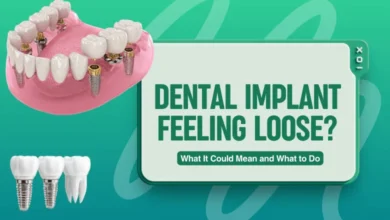How Technology Transforms Locum Tenens Management

Technology is impacting every element of healthcare today. Locum tenens providers benefit from this technology just as other medical professionals do. They may use telemedicine to connect with patients or advanced scheduling platforms to ensure coverage. These digital tools allow for more flexibility and efficiency. Locum providers find technology makes adapting to new healthcare settings easier while providing high-quality healthcare in diverse environments.
Telemedicine
Healthcare providers often turn to telemedicine to reach more patients. They may use locum tenens based software when doing so. These telemedicine tools allow them to consult with patients regardless of physical location. Patients in rural areas and those with limited access to healthcare benefit considerably from telemedicine. Providers do as well because they can manage their time more effectively. They spend less time traveling and on in-person appointments and more time caring for patients. Individuals who previously lacked access to quality care find telemedicine benefits them significantly.
Scheduling
Locum tenens and healthcare facilities benefit from technology in terms of scheduling and communication. These platforms allow them to coordinate shifts quickly and effortlessly. Providers can manage assignments, access essential documents, and communicate using the scheduling platform with facility staff. Administrative burdens decrease when this technology is in place. Real-time updates reduce the possibility of potential conflicts.
Care Quality
Many areas of the country lack quality healthcare. Locum tenens help overcome this with the help of technology. They can offer virtual visits and telehealth services to ensure individuals in these areas receive treatment when needed. Care is more consistent, follow-up capabilities are boosted, and patient outcomes improve.
The Role of AI
Artificial intelligence is playing a significant role in healthcare today. It is helping providers gain insights while improving health outcomes. Authorities are still trying to answer questions regarding the safety and regulation of AI, but many providers today find they are already benefiting from its use.
Healthcare professionals use AI to identify patterns and generate insights humans might overlook. AI will likely play a significant role in clinical care delivery in the future. This technology will assist medical providers with diagnosing patients and prescribing medications, and individuals will receive personalized medication and care when this technology is used.
Industry insiders believe AI may replace the Modified Early Warning Scale used by hospitals to determine the risk of a patient clinically deteriorating in the coming hours. It is of help with diagnostics and imaging, as some radiologists are now using it when making a diagnosis.
Machine learning also helps detect errors and oversee drug delivery. This improves patient safety by catching issues early and changing the trajectory. For example, artificial intelligence can be used to catch cancers at a much earlier stage. Early detection leads to better outcomes, so radiologists should implement this technology as often as possible.
Locum tenens currently benefit from technology. They use it for scheduling, communicating with facility managers, and more. In addition, technology is being used more often to diagnose patients and devise treatment plans. Medical AI systems are increasingly important even as the medical community faces complex ethical issues arising from their use.
Locum tenens must keep up with what is happening when using technology in the field. The right staffing agency will help these individuals do so, and they should also communicate with facility managers at each assignment they take. Doing so ensures they use technology to enhance patient care and improve outcomes.
Discover more expert insights. Check out our resources.





